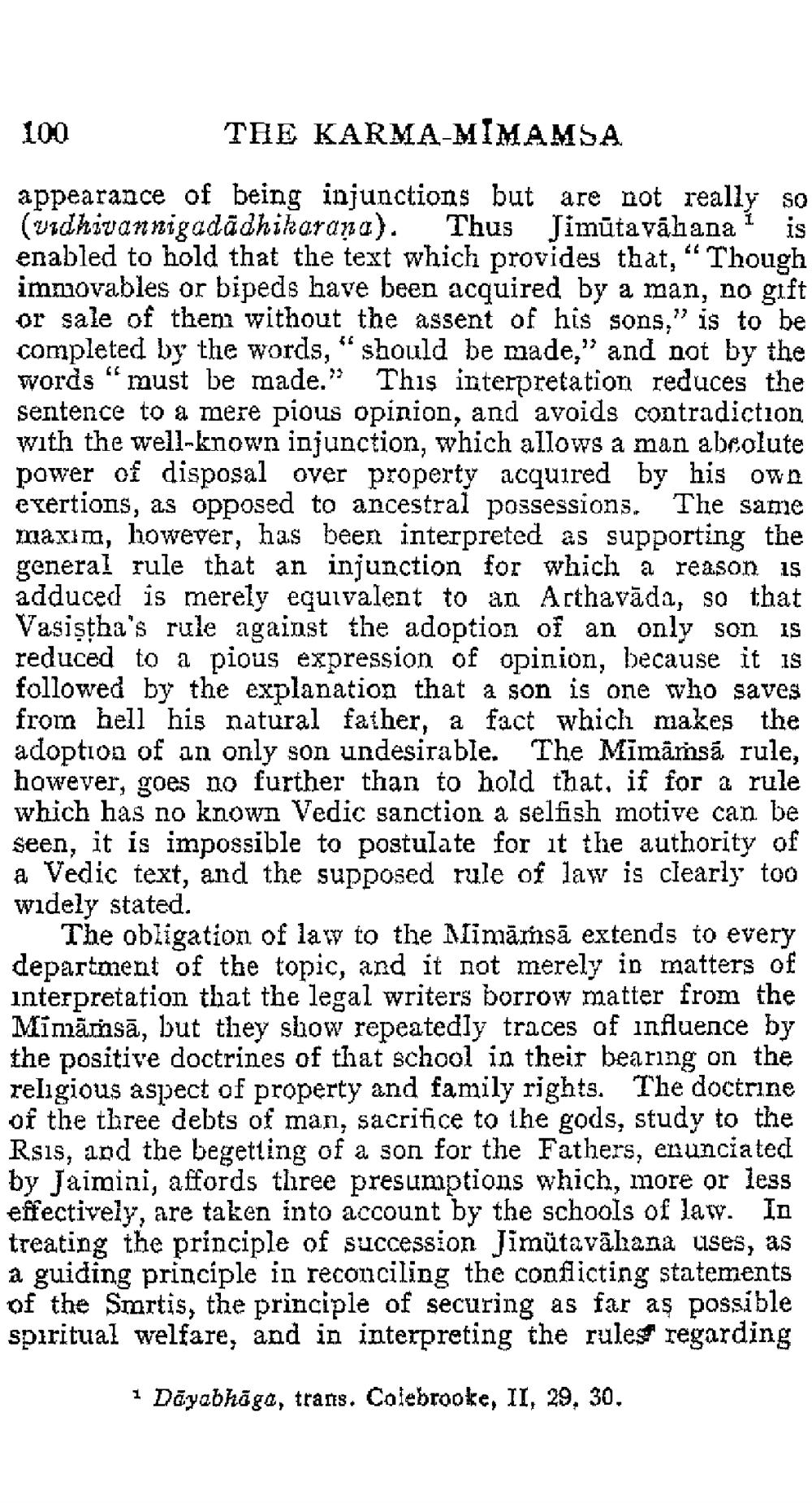________________
100
TRE KARMA-MIMAMSA
appearance of being injunctions but are not really so (vidnivannigadādhikarana). Thus Timūta väliana is enabled to hold that the text which provides that, “Though immovables or bipeds have been acquired by a man, no gift or sale of them without the assent of his sons," is to be completed by the words, "should be made," and not by the words “must be made. This interpretation reduces the sentence to a mere pious opinion, and avoids contradiction with the well-known injunction, which allows a man abeolute power of disposal over property acquired by his own exertions, as opposed to ancestral possessions. The same maxim, however, has been interpreted as supporting the general rule that an injunction for which a reason is adduced is merely equivalent to an Acthavāda, so that Vasiştha's rule against the adoption of an only son is reduced to a pious expression of opinion, because it is followed by the explanation that a son is one who saves from hell his natural father, a fact which makes the adoption of an only son undesirable. The Mīmāṁsā rule, however, goes no further than to hold that, if for a rule which has no known Vedic sanction a selfish motive can be seen, it is impossible to postulate for it the authority of a Vedic text, and the supposed rule of law is clearly too widely stated.
The obligation of law to the Mimāṁsā extends to every department of the topic, and it not merely in matters of interpretation that the legal writers borrow matter from the Mimāmsā, but they show repeatedly traces of influence by the positive doctrines of that school in their bearing on the religious aspect of property and family rights. The doctrine of the three debts of man, sacrifice to the gods, study to the Rsis, and the begetting of a son for the Fathers, enunciated by Jaimini, affords three presumptions which, more or less effectively, are taken into account by the schools of law. In treating the principle of succession Jimütavāhana uses, as a guiding principle in reconciling the conflicting statements of the Smrtis, the principle of securing as far as possible spiritual welfare, and in interpreting the rules regarding
1 Dāyabhāga, trans. Colebrooke, II, 29, 30,




